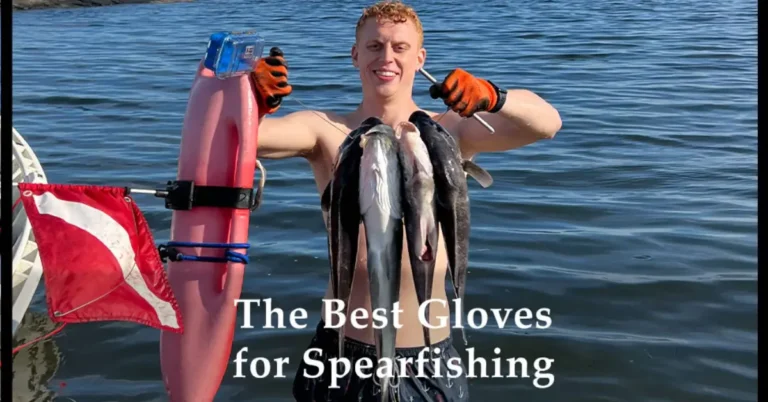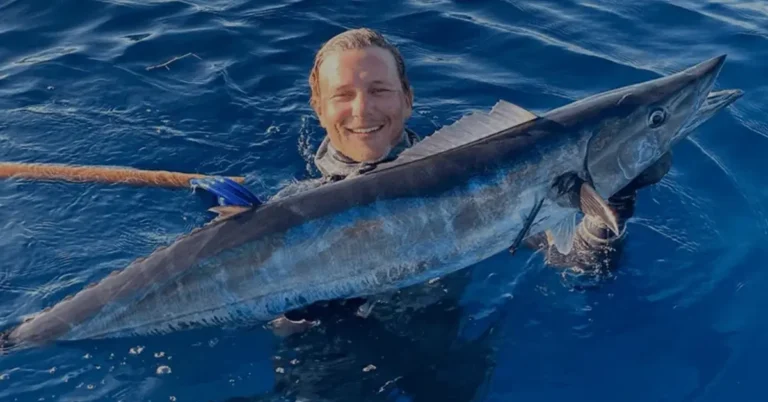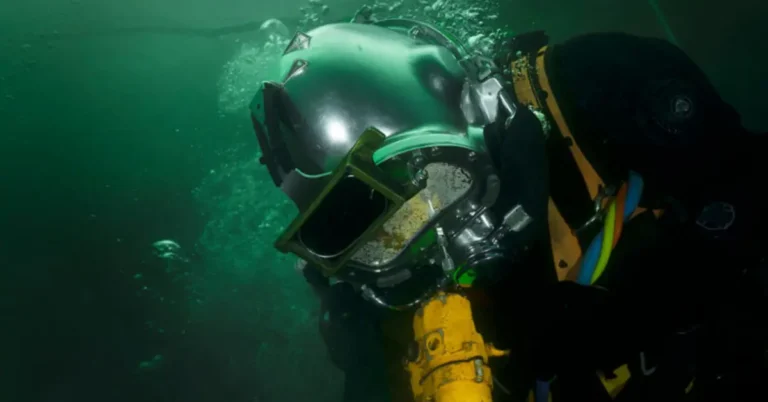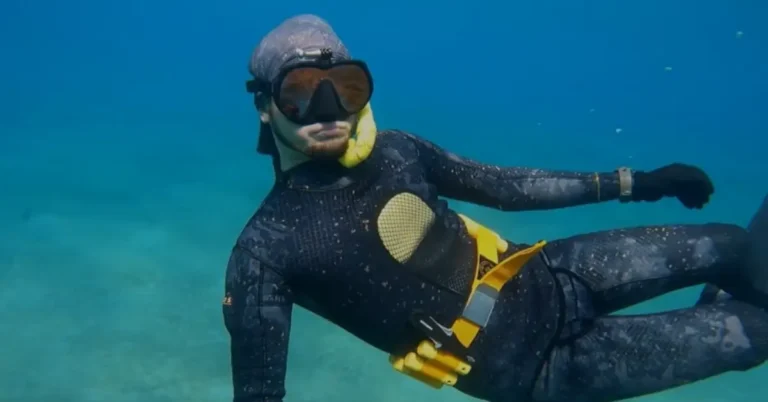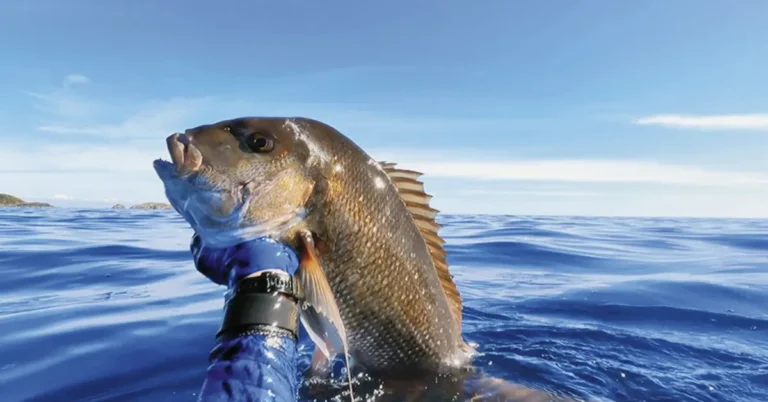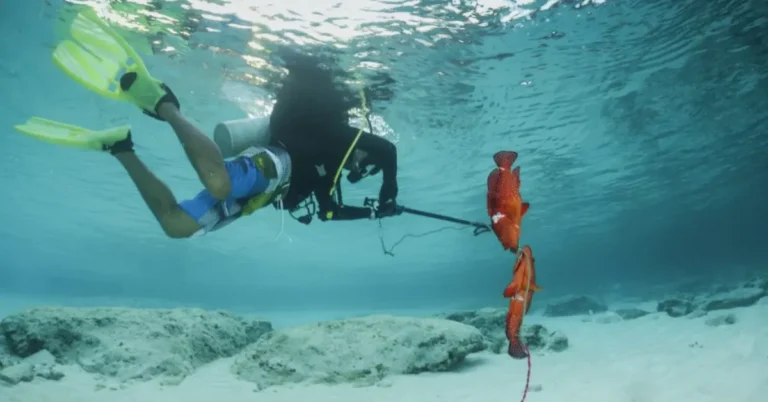Is Spearfishing Dangerous? [How Can It Be Done Safely?]
Spearfishing can be thrilling, but it’s essential to understand its risks. Like any sport, safety is crucial. Your experience, fitness, weather, location, gear, and marine life affect safety. Prepare well to minimize dangers.
If unsure, it’s better to stop than risk an accident. Don’t let risks discourage you, but be cautious. Here are essential safety tips: know your limits, stay aware, use proper gear, and be prepared. With responsibility and preparation, you can enjoy spearfishing safely.
Also Read: Where to go Spearfishing?
Is Spearfishing Dangerous? [and Why?]
Understanding the dangers of spearfishing requires knowing common risks. Human error plays a significant role in accidents. Like those TV shows about plane crashes, a series of mistakes can lead to disaster. Ignoring weather forecasts or equipment issues can be risky.
Even experienced spears can make errors. Pay attention to warnings about weather and marine dangers. Following safety rules reduces human error. Stay cautious and informed to stay safe while spearfishing.
What are the Dangers of Spearfishing?
Even the most prepared spears can face unforeseen dangers. Let’s look at the most common risks of spearfishing:
How Could You Spearfish Safely?
Now that you know the dangers of spearfishing and how to stay safe, remember the most important rule: never go alone, especially if you’re a beginner or in unfamiliar waters. Having a buddy or a group with you can be a lifesaver in emergencies. Even if they’re not diving, having someone on a boat to monitor you is crucial.
Check all your gear, ensuring everything works perfectly, especially your mask and fins. Be extremely careful with spearguns to avoid hitting others. Use a buoy to mark your position, and consider hiring a guide for added safety. Keep your phone charged and dry in case of emergencies.
How Can Deep Spear Fishermen Dive?
In spearfishing, dive to a depth you’re comfortable with. Unlike competitive free diving, the goal isn’t to reach the deepest point. It’s about technique, patience, and precision to catch fish. Beginners or those with weaker fitness may not dive as deep or as long.
Depth isn’t everything; shallow waters can yield plenty of fish. Most spears dive between 5 to 25 feet, with some reaching 50 to 60 feet. Professionals may dive more profoundly, but it’s risky for amateurs. Extreme dives of around 200 feet are rare and dangerous. Remember, depth isn’t crucial for spearfishing success.
Does Spearfishing Attract Sharks?
Many wonder if spearfishing attracts sharks; sadly, it can to some extent. In areas where sharks live, the scent of blood from dead fish may draw them closer. Not all sharks are dangerous, but encountering one can be alarming and potentially risky.
Panic increases the drowning risk. Luckily, fatal encounters are rare. If you’re unprepared for shark encounters, it’s best to avoid spearfishing in shark-prone areas. If you must, take precautions.
How to Avoid Sharks While Spearfishing? [and What to Do?]
Here’s how to avoid sharks while spearfishing:
- Keep your catch away from you, preferably out of the water.
- Avoid murky waters and low-visibility areas where sharks can sneak up on you.
- When sharks are most active, they stay out of the water during dawn, dusk, and cloudy weather.
- Be vigilant and observe the water before entering, especially in clear conditions.
If you encounter a shark while spearfishing:
- Don’t try to keep your catch if a shark tries to take it. Let it go.
- Stay calm and avoid sudden movements.
- Please keep your eyes on the shark and slowly move away, facing it.
- Avoid hitting the shark with your spear, as it may anger it.
- If multiple sharks approach or one becomes aggressive, leave the water.
- Stay confident and assertive; remember, they’re just curious, not out to harm you.
Things To Remember When Spearfishing Goes Wrong!
While shark attacks in spearfishing are rare, other emergencies can happen. How you react can make a big difference. Here’s what to do:
- Stay calm, breathe, and think before acting.
- If you see someone in trouble, call for help and get them out of the water.
- If you feel unwell, use a buoy to stay afloat and get to safety.
- Keep your strength and avoid panicking.
- Call for help and signal others nearby if you’re in trouble.
- If injuries occur, treat them and stop bleeding until help arrives.
- Don’t remove a spear if someone’s been hit; press around the wound and wait for help.
- If you feel strange, see a doctor; it could be barotrauma.
- Seek help immediately if bitten or burned by a fish or jellyfish.
Remember, knowing first aid can be crucial for helping others or yourself in emergencies while spearfishing.
Does spearfishing require special skills?
Yes, spearfishing requires special skills to ensure safety and success underwater. These skills include breath-holding techniques to extend dive times, proficiency in using spearguns or pole spears to target fish accurately, and the ability to navigate underwater environments safely.
Additionally, understanding marine life behavior, such as recognizing fish species and their habitats, is essential for effective spearfishing. Developing good swimming and diving abilities and mastering buoyancy control are also necessary skills for spearfishers. Overall, acquiring these skills through training and practice is crucial for enjoying spearfishing while minimizing risks and maximizing the experience.
Frequently Asked Questions
Conclusion
Spearfishing safety relies on responsibility and preparation. Risks can be minimized by understanding dangers and taking precautions. It’s safer with the company, even if they don’t dive. Nature’s power shouldn’t be underestimated. Each person decides if the risk is acceptable.
With proper care, spearfishing is generally safe, especially with experienced companions. Start slowly, learn from others, and know local risks. While risk can be reduced, it can’t be eliminated. For many, managing risks is part of the thrill. Remember, safety comes first while enjoying the adventure of spearfishing.
![Is Spearfishing Dangerous? [How Can It Be Done Safely?]](https://wildsportexplorer.com/wp-content/uploads/2024/04/Untitled-design-2024-04-03T193134.769.webp)
